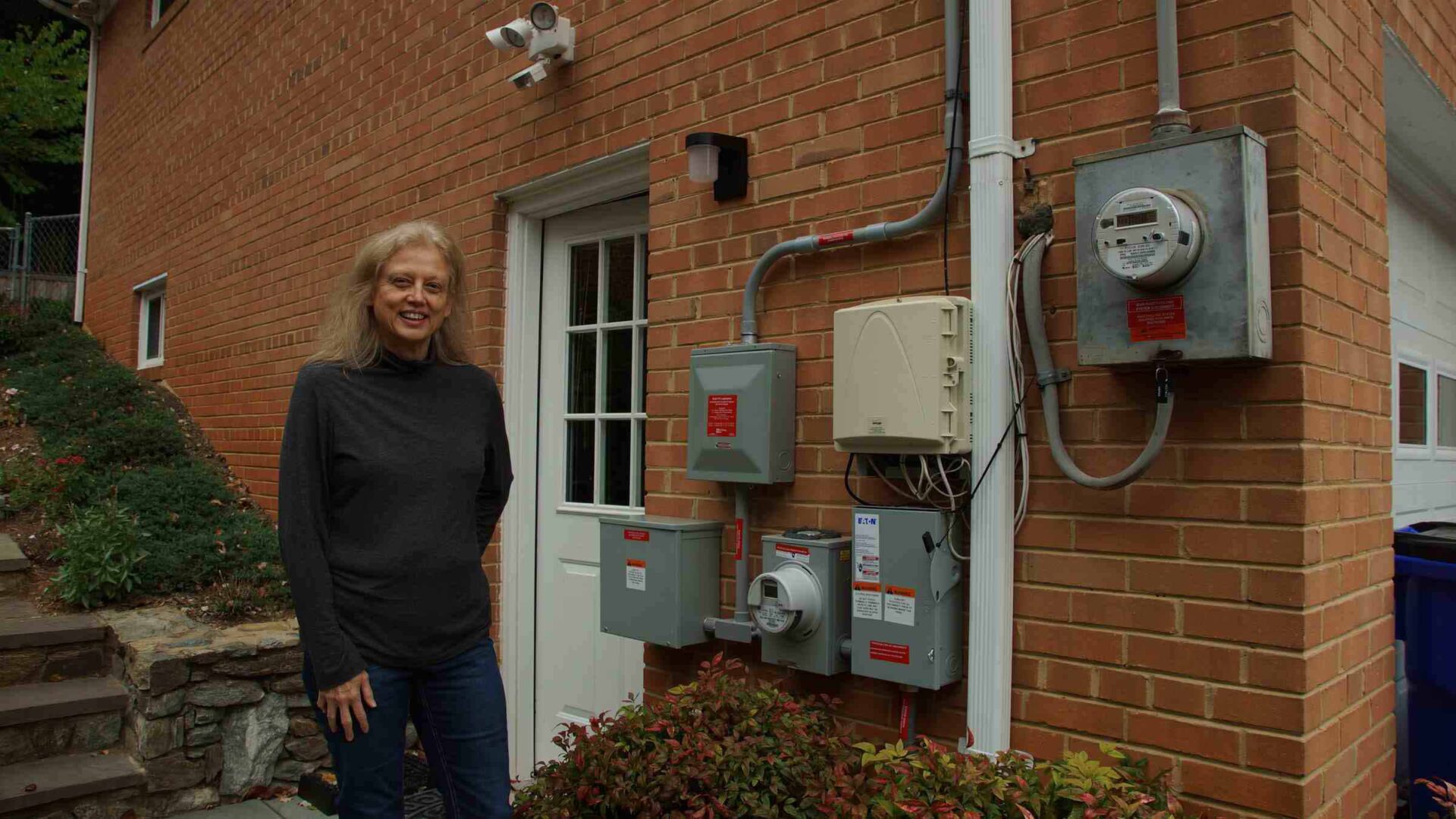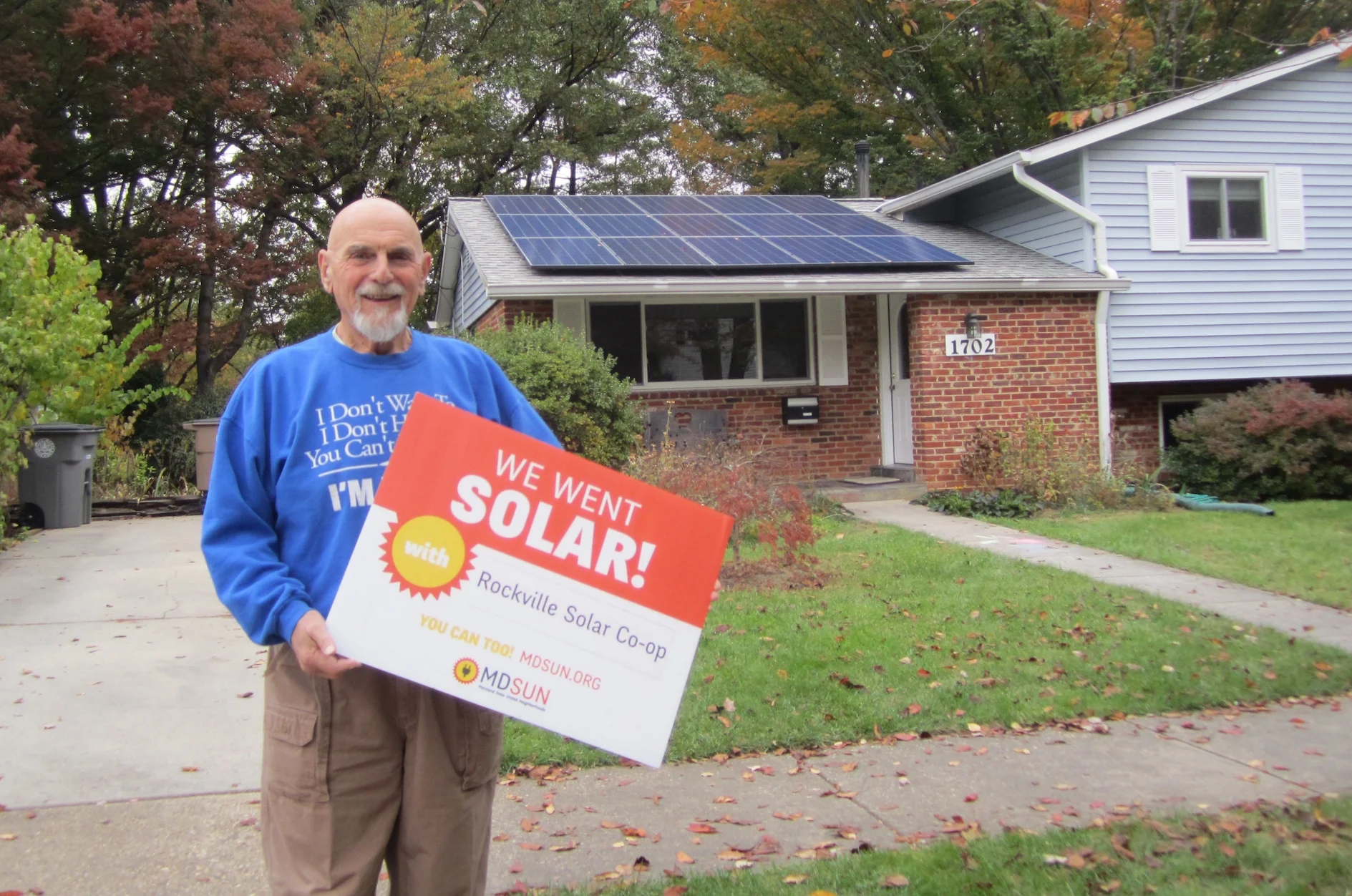Net metering in Maryland
- Factsheet

What is net metering?
Net metering is the policy that allows people with solar to get a credit on their electric bill for the energy they produce from their system.
Net metering in Maryland
Maryland Code §7-306 and COMAR 20.50.10 establish the rules and regulations of net metering in Maryland. Systems eligible for net metering must be less than two megawatts (MW) in capacity or 200% of the owner’s annual baseline electricity usage.
Maryland electric utilities and cooperatives are required to allow all eligible customers to net meter until the total capacity of net metered systems in Maryland reaches 1,500 MW.
System requirements include:
- System capacity limit: 200% of customer annual electricity usage
- Monthly excess generation credit rate: Full retail
- Annual excess generation credit rate: Average commodity electricity rate
- State-wide net metering cap: 1,500 MW (10% of 2014 peak demand)
- Applicable utilities: All utilities
Policies expanding net metering: Aggregate net metering and virtual net metering

Billing and compensation
Utility customers with net metered systems will be credited for each kilowatt hour produced by their system. Each month will be billed for the number of kilowatt hours they used, minus the number of kilowatt hours generated.
If your generation exceeds your usage for a given month, you will receive a credit for each excess kilowatt hour, to be applied in later months when you generate less electricity than you consume. Utilities may not charge net metered customers new or additional fees or rates that they don’t charge non-generating customers of the same rate class.
At the end of each 12-month billing cycle in April, utilities will compensate net-metered generators for their excess credits during that period at the average annual commodity electricity rate for their utility or their electricity supplier. So, while the regulations permit a customer to produce up to 200% of their annual usage from solar, for any generation more than 100%, the customer is compensated in April at a lower rate for that excess.
Other types of net metering
- Aggregate net metering: Available to agricultural producers, non-profit organizations, municipal governments and affiliated organizations.
- Virtual net metering: Allows anyone to benefit from solar electricity not generated on their property. Community solar subscribers receive bill credits through virtual net metering.
Take action
Having trouble interconnecting your system?
If you’re looking for answers with net metering or getting your system interconnected, post to the Solar United Neighbors of Maryland listserv for help.
File a complaint
Our utilities exist to serve their customers. If you have a problem that isn’t being resolved quickly by your utility, you can file a complaint with the Maryland Public Service Commission.
Maryland resources
History of virtual net metering in Maryland
2013–2015
May 2015
July 2016
Fall 2016
May 2017
Go solar in Maryland!
Get the latest on solar straight to your inbox.
Fight for your solar rights.
Everyone has the right to go solar. Spread the sunshine nationwide and in your local community by taking action, joining events, and more.